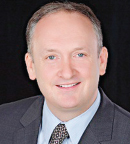In 2014, The ASCO Post spoke with Mark J. Clemons, MB BS, BMedSci, MSc, MD, FRCP, FRCPC, of Ottawa Hospital Cancer Centre, Ottawa, Ontario, Canada, about the retirement challenges faced by many oncologists. With market demand expected to exceed supply of oncologists soon, it is clear retirement is not only affecting the retirees but will be leading to increased workload and stress for their colleagues within the oncology community. Dr. Clemons, who has continued to follow this topic in a new study,1 recently spoke with The ASCO Post to shed light on this issue, offering, among other things, some insight into the COVID-19 pandemic’s effect on older oncologists.

Mark J. Clemons, MB BS, BMedSci, MSc, MD, FRCP, FRCPC
Oncology Workforce
A 2007 ASCO survey anticipated that about 55% of practicing medical oncologists would be 65 or older by 2020.2 Do current data confirm that prediction?
The most recent ASCO data (Yang et al 20143) predict a shortage of 2,393 oncologists by 2025. Clearly, like many employment aspects of COVID (you will see online articles suggesting that many people are “quitting” their jobs), the reality is much more complicated. Indeed, we are aware of oncologists delaying retirement to “after COVID,” as they were not sure what they would do during this period of global “confinement.” Given the recurring waves of COVID, many retirees, who have spent their working lifetime dreaming of travel, spending time with their grandkids, or simply enjoying their newfound freedom, now must accept the reality of ongoing COVID-induced confinements.
Given the workforce shortage, what does the aging oncologist population coupled with retirement portend?
The two events together could present incredible challenges for workforce planning and resource management. However, obtaining accurate data on actual retirement patterns remains difficult.
The Decision to Retire
Although retirement is a personal decision, do you have a sense of when most oncologists retire? And, as a follow-up, why?
In our paper,1 we cited an ASCO survey of U.S. oncologists, which anticipated that 54% of practicing medical oncologists would be 65 or older by 2020. This survey also showed the expected retirement age for respondents was 64.3 years. We know now that one in five U.S. oncologists is 64 or older.
Oncology is a long-learned craft, and most of us enjoy the combination of patient care and new developments in the field. We are highly invested in our patients. However, finding accurate data on when most oncologists are choosing to retire is still proving difficult.
Burnout and Aging
ASCO has spent energy on the issue of physician burnout. Although burnout can occur at any age, do you know how this phenomenon is associated with age for older oncologists?
In our paper, we cited a study in 2013 showing that almost half of oncologists experience burnout, thus revealing that one must often take moments to introspect on one’s work-life balance throughout practice and make necessary modifications. This has been exacerbated by the current pandemic: a recent survey of the global oncology workforce during the COVID-19 pandemic by the European Society for Medical Oncology showed an increase in respondents experiencing burnout feelings from 38% in April/May 2020 to 49% in July/August 2020.4 So indeed, although burnout can happen at any age, handling an excessive workload coupled with sleep deprivation, threats of litigation, and witnessing human suffering may become more challenging after 30 years in practice.
Telemedicine and the Doctor-Patient Relationship
The COVID-19 pandemic has reshaped medicine in certain ways, such as the greater use of telemedicine. Have we begun to forecast the full effects of this technologic intervention on the unique doctor-patient relationship?
This is a brilliant question, and there is little doubt that electronic medical records (EMRs) are portrayed as incredible advances in patient care. They have, however, led to oncologists spending less time with patients, as they do multiple “clicks” to perform processes that used to be more straightforward! Although useful for simple exchanges, virtual consultations can be very challenging when delivering bad news and complex care plans. Oncologists and patients are all going to need to live and learn with this technology, as it is unlikely that things will return to the way they were “before COVID.”
In your opinion, does the advent of technologies such as EMRs and artificial intelligence (AI)-driven pathology displace some of the art of oncology? If so, what does it say about the future?
For oncologists everywhere, although the care of patients with cancer is stressful and demanding, it can be incredibly rewarding! We are used to adapting to new situations; that is the beauty of caring for patients with cancer. There can be little doubt that the new generation of oncologists will come through a system that is more heavily built on EMRs and AI; hopefully, this will lead to less variation in care and improvement in patient outcomes. However, interaction with patients, not machines, is at the core of good cancer care. Indeed, to paraphrase the words of Willian Osler: “Those who study medicine without books sail an uncharted sea, but those who study medicine without patients do not go to sea at all.”
DISCLOSURE: Dr. Clemons reported no conflicts of interest.
REFERENCES
1. Beltran-Bless AA, Vandermeer B, Paterson A, et al: Lost in transition? Thoughts on retirement, part 2. “Should I stay or should I go now?” Oncologist 26:e1290-e1295, 2021.
2. Erikson C, Schulman S, Kosty M, et al: Oncology workforce: Results of the ASCO 2007 program directors survey. J Oncol Pract 5:62-65, 2009.
3. Yang W, Williams JH, Hogan PF, et al: Projected supply of and demand for oncologists and radiation oncologists through 2025: an aging, better-insured population will result in shortage. J Oncol Pract 10:39-45, 2014.
4. Burki TK: Burnout among cancer professionals during COVID-19. Lancet Oncol 21:1402, 2020.

